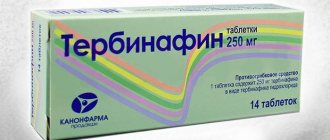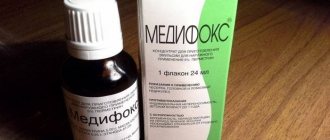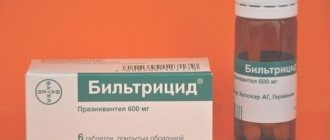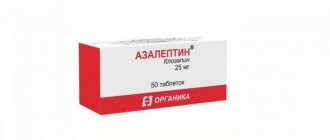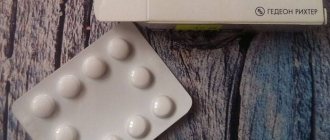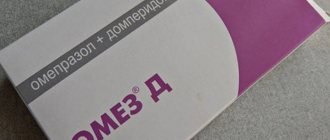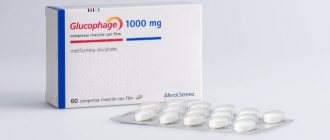Acyclovir ointment is an effective antiviral drug for external use. First of all, it is intended for the treatment of manifestations of the herpes simplex virus on the skin. The drug has a minimum of contraindications and side effects and is well tolerated even by the elderly and children. Pharmacies offer several subtypes of medication, for example, Acyclovir-Acri. The additional prefix to the main name indicates only the manufacturer of the medicine.
Composition and release form
This medication is available in several dosage forms:
- Cream for external application 5% - packaged in aluminum tubes of 10 g, 5 g and 2 g.
- Ointment for external use 5% - aluminum tubes of 10 g, 5 g, 3 g and 2 g, as well as glass jars of 20 g, 10 g, 5 g.
- Eye ointment 3% - available in aluminum tubes, packaged in 5 g.
- Lyophilisate for the production of solutions for intravenous infusions - produced in bottles of 500 mg and 250 mg.
- Tablets for oral use - 400 mg and 200 mg and 100 mg - blisters of 10 tablets.
The active element of this medication is the substance acyclovir, which is contained in different dosage forms in the following dosages:
- 1 g ointment or cream – 50 mg;
- 1 bottle of lyophilisate – 1,000 mg, 500 mg and 250 mg;
- 1 g eye ointment – 30 mg;
- 1 tablet – 200 mg.
Information about the side effects of Acyclovir can be found in the instructions.
Terms of sale and storage
Acyclovir ointment is available in almost every pharmacy. Sold as an over-the-counter drug, i.e. When purchasing, you do not need a prescription from a doctor. Store the drug in a dry place, protected from sunlight. Access for children and pets must be limited. Storage temperature should not exceed 25°C. The shelf life is 3 years from the production date, which is indicated on the pack and aluminum tube. It is prohibited to use medicine that has expired.
The cost of the medicine depends on the region where the sale takes place and the manufacturer. For example, Acyclovir ointment 5%, 10 g produced by Akrikhin in Moscow can be bought for 50 rubles.
pharmachologic effect
The drug is an antiviral drug for parenteral, oral, topical and local use, and is a synthetic substance identical to an acyclic purine nucleoside. This medication has great specificity for the viral agents Herpes simplex (type 1 and type 2), Epstein-Barr virus, cytomegalovirus and Varicella zoster. The highest activity of the active element is observed for HSV-1, then in descending order - for HSV-2, VZV, EBV and CMV. The principle of action of the drug is due to the penetration of the active substance directly into those cells that are infected with the virus and produce thymidine kinase, as a result of which acyclovir begins to phosphorylate to acyclovir monophosphate.
The functionality of viral thymidine kinase to acyclovir is significantly higher than the effect of cell enzymes on it (the level of acyclovir monophosphate in infected cells is approximately 40–100 times higher). Subsequently, the formation of acyclovir triphosphate occurs, which acts as a selective and fairly active inhibitor of viral DNA polymerase. It is most likely that the principle of inhibition of deoxyribonucleic acid by acyclovir triphosphate is that it is a substrate for this enzyme, which allows for a 3'–5' bond. It is necessary to extend the DNA chain. As a result, premature DNA strand breakage occurs.
Side effects from Acyclovir can develop equally often in both adults and children.
Pharmacokinetic properties
The drug "Acyclovir" in tablet form after oral administration is only partially absorbed in the intestine. After five times a day of 200 mg, the highest and minimum concentrations of the substance in the body are 0.8 and 0.5 mcg/ml, respectively. In the cerebrospinal fluid, the level of acyclovir reaches 50% of the plasma level. The drug binds relatively low to plasma proteins (9–34%) and is excreted mainly through the kidneys unchanged.
When the ointment is applied externally to intact skin, the main substance has minimal absorption and is not detected in urine and blood. When used on affected skin, it is absorbed to a moderate extent. In the absence of impaired renal function, the concentration in the blood reaches 0.28 mcg/ml; in people with chronic renal failure, this figure rises to 0.78 mcg/ml. Excretion from the body is carried out by the kidneys.
The drug "Acyclovir" in the form of an eye ointment easily penetrates the corneal epithelium, providing a therapeutic level in the intraocular fluid. There are no methods for determining the substance in the blood when using this dosage form.
Equilibrium maximum concentrations of acyclovir infusion solution after administration for an hour at a dose of 2.5; 5; 10 and 15 mg/kg are equal to 5.1; 9.7; 20.8 and 23.6 μg/ml, respectively. The lowest concentrations 8 hours after intravenous administration at the indicated dosages are 0.6; 0.8; 2.4 and 2.1 μg/ml, respectively. Following intravenous infusion in adults, the half-life is approximately 2.9 hours. The main part of the active substance is excreted by the kidneys. Its main metabolite is considered to be 9-carboxymethoxymethylguanine.
Indications for use of the drug
According to the instructions for use, the medical drug "Acyclovir" is prescribed orally and parenterally for the treatment of the following pathological conditions:
- recurrent forms or genital herpes of the primary type, which occurs with severe symptoms;
- primary herpes, as well as its recurrent manifestations, in which damage to the skin and mucous membranes occurs, caused by Herpes simplex types 1 and 2, in patients with low immunity;
- herpes zoster (Varicella zoster virus);
- herpes zoster, which affects the eyes.
Internal use of the drug "Acyclovir" is indicated for the prevention of frequent relapses of genital herpes, as well as herpes zoster and herpes simplex (Varicella zoster virus), in case of impaired immune functions. Parenterally, this drug is prescribed for the treatment of encephalitis (two types of Herpes simplex virus), and for the treatment of generalized infection in infants (Herpes simplex). When treating chickenpox during the first day after the onset of a typical rash with impaired immunity, the medicine is taken orally or administered parenterally.
Side effects of Acyclovir tablets, as well as other forms of release, develop especially often if existing contraindications for use are not followed.
What does the drug contain?
The active substance belongs to the group of antiviral drugs. In 1 g. the product contains 50 mg. active component (5%). Other ingredients included in Acyclovir ointment play a supporting role.
Various manufacturers use the following substances in the ointment base:
- purified water;
- propylene glycol;
- white Vaseline;
- fatty alcohols;
- viscous paraffin.
They produce 5% Acyclovir cream intended for external use. The active ingredient is the same as in the ointment of the same name. The auxiliary ingredients differ: instead of Vaseline - Vaseline oil, vegetable oils.
Acyclovir ointment for eyes is an ophthalmic agent. In 1 g. the drug contains 30 mg. active substance. Vaseline is used as a base. The packaging states that the ointment is for ophthalmic use, which means it is sterile.
Release forms
Soft dosage forms of the drug are applied to the skin and mucous membranes. Such products are produced in plastic tubes weighing 2, 5, 10 g. You need to decide which is better Acyclovir cream or ointment after studying the dosage of the active ingredient and the composition of the auxiliary components.
Vaseline leaves greasy stains on skin and clothes. An ointment on this basis is absorbed more slowly, penetrates into deep skin tissues, and lasts longer. This dosage form has drying properties and prevents the affected area from getting wet.
The cream contains oil in water, spreads easily and is quickly absorbed. Apply to the face, neck, rub into the genital area, without fear of greasy shine and stains on clothes. However, the cream penetrates less deeply into the skin.
How does Acyclovir work?
The drug appeared back in 1979 and immediately revolutionized antiviral therapy. The active substance has good effectiveness, but only against certain types of viruses. Serious side effects during treatment are rare.
Benefits of Acyclovir in ointment form:
- Relieves rashes caused by infection with human herpes viruses types 1, 2 and 3 (HHV-1,2,3).
- Damages the genetic material of pathogens and interrupts the mechanism of viral reproduction in human skin cells.
- It is not activated in uninfected cells, since they lack viral enzymes.
- It has an immunostimulating effect and increases local immunity.
- Soothes pain and itching, heals blisters and ulcers.
- Almost not absorbed through the skin.
Acyclovir ointment is used for lichen caused by HHV-3, namely varicella zoster. Primary infection with this pathogen manifests itself as chickenpox and is milder. When a dormant infection becomes active, herpes zoster develops.
The blistering rash appears on the upper or middle back. The antiviral agent has no effect on the causative agents of fungal infection, which is also popularly called “lichen.”
List of contraindications
The use of all dosage forms of the drug "Acyclovir" is contraindicated in the presence of high sensitivity to the components of its composition. Absolute contraindications for taking pills are:
- lactose intolerance;
- lack of lactase;
- glucose or galactose malabsorption;
- age less than 3 years;
- lactation.
Relative contraindications:
- neurological reactions to the use of cytotoxic pharmacological agents (including in the presence of a complicated medical history);
- renal dysfunction;
- large dosages, especially against the background of severe dehydration;
- pregnancy period;
- elderly age.
Relative contraindications for ointments and creams for topical use include pregnancy and lactation. In this case, the medication is used strictly under the supervision of a doctor.
It is better to familiarize yourself with the contraindications of Acyclovir and side effects in advance.
For eye ointment, an absolute contraindication for use is during breastfeeding. During pregnancy, eye ointment can be used only on the recommendation of a doctor and under his supervision.
For the infusion solution, the main contraindication is lactation; the list of relative restrictions includes:
- dehydration of the body;
- kidney or liver failure;
- neurological disorders;
- complex forms of hypoxia;
- electrolyte disturbances;
- reactions to the use of cytotoxic medications (including history);
- combination therapy with medications that can impair renal function, in particular with tacrolimus, cyclosporine (monitoring of renal function is necessary);
- complex treatment with mycophenolate mofetil (an immunosuppressive drug used in organ transplantation);
- pregnancy period.
To avoid side effects from Acyclovir in children and adults, it is important to strictly follow the instructions.
Restrictions on use
Acyclovir ointment, according to the instructions, has a minimum of contraindications. High sensitivity to any components of the medication is one of the limitations. You should not use the medicine in the following conditions:
- the period of bearing a child and breastfeeding;
- the presence of open wounds, purulent, ulcerative lesions at the site of application;
- children under 3 years of age.
The ointment is prescribed with caution to patients with neurological pathologies, renal failure, and dehydration.
Instructions for use
For adults, when treating relapses and primary Herpes simplex infections of the mucous membranes and skin, 1 tablet is prescribed 5 times a day for 5 days. Longer treatment may be necessary for severe disease. If the immune system is weakened, it is possible to administer this drug intravenously or increase the dosage by 2 times. To suppress relapses while the body’s immune defense is functioning properly, 1 tablet is prescribed 4 times a day.
Externally, Acyclovir cream and ointment are applied to the affected areas with clean hands or using a cotton swab in a thin layer 5 times a day. Treatment must be continued until crusts form on the blisters or until they are completely healed. Duration of therapy is up to 10 days. Eye ointment is placed in a small amount under the lower eyelid into the conjunctival sac in the form of a strip. The procedure is carried out 5 times a day until complete healing, then treatment should be continued for another 2-3 days.
Patients over 12 years of age are usually prescribed intravenous drips of 5-10 mg/kg with an interval of 8 hours. For children from 3 months to 12 years, the dose is calculated taking into account the surface area of the skin - 250 mg/m2, for newborn babies - 10 mg/kg.
Side effects of Acyclovir
The medication in any dosage form can cause the following negative reactions:
- Allergic skin rashes.
- Anaphylactic reactions.
- Increased activity of liver enzymes.
- Confusion.
- Development of hallucination.
- Feverish condition.
- Lymphadenopathy.
- Cephalgia.
- Leukopenia.
- Peripheral edema.
- Visual impairment.
If any of the symptoms occur, you must immediately stop taking the drug.
With parenteral administration of this pharmacological agent, the following may occur:
- Phlebitis.
- Acute kidney failure.
- Signs of encephalopathy.
- Hematuria.
- Hematological disorders.
- Hemolysis.
- Reduced blood pressure.
- DIC syndrome.
- Mental disorders.
- Psychosis or depression.
- Digestive dysfunction.
If negative reactions are ignored, the consequences can be very severe. It is better to consult a doctor immediately.
Side effects of Acyclovir tablets:
- Malaise.
- Paresthesia.
- Digestive dysfunctions.
- Alopecia.
- Agitation.
- Dizziness, cephalgia.
- Drowsiness, myalgia.
Of course, the likelihood of such reactions depends on the individual characteristics of the organism. It is very important to follow the instructions, then the risk of their development will be minimal.
Side effects of Acyclovir ointment occur extremely rarely.
Side effects of Acyclovir
The drug Acyclovir is generally well tolerated. During a course of treatment with Acyclovir tablets, the following most often develop:
- Dizziness;
- Fatigue;
- Itching;
- Nausea;
- Headache;
- Fever;
- Hives;
- Rash, including sensitization;
- Vomit;
- Diarrhea.
In addition, the use of Acyclovir can lead to disruption of certain body systems, namely:
- Digestive system – jaundice, hepatitis, abdominal pain;
- Hematopoietic system – anemia, hyperbilirubinemia, thrombocytopenia, erythropenia, leukopenia;
- Central nervous system - drowsiness, tremor, agitation, ataxia, confusion, encephalopathy, hallucinations, dysarthria, convulsions, psychotic symptoms, coma;
- Respiratory system - shortness of breath.
Of allergic reactions, the most likely development is skin rash, urticaria, itching, Lyell's and Stevens-Johnson syndrome, as well as anaphylactic reactions.
Other side effects of Acyclovir tablets include blurred vision, peripheral edema, myalgia, lymphadenopathy, and malaise.
The use of Acyclovir eye ointment causes practically no undesirable effects. In rare cases, minor allergic reactions are possible in the form of immediate hypersensitivity, conjunctivitis, pinpoint superficial keratopathy, mild burning, blepharitis, which does not require discontinuation of the medication.
External Acyclovir ointment may cause pain, itching, vulvitis, burning, skin rash, allergic reactions and swelling at the site of application.
Signs of overdose
The most common signs of overdose are: agitation, coma, seizures, lethargy. If the concentration of the main substance is higher than the solubility in the renal tubules, its precipitation may occur. If side effects from Acyclovir develop, symptomatic treatment is prescribed. In case of an overdose of the infusion solution, the concentration of creatinine, urea and blood nitrogen increases, and renal failure occurs. Neurological symptoms include agitation, confusion, hallucinations, convulsions, and coma. In this case, hemodialysis is prescribed.
Special Recommendations
Long-term use of the drug "Acyclovir" or a repeated course in patients with reduced immunity can provoke the emergence of strains of viruses that are not sensitive to the effects of the drug. When taking the drug orally in large doses, it is necessary to monitor the flow of fluid into the body. The use of the medicine does not prevent the transmission of the herpes pathogen through sexual contact, so during therapy you should refrain from sexual contact, even if there are no clinical manifestations of the pathology.
During the period of using this medication orally in tablet form, patients are advised to exercise caution when driving vehicles. The solution for infusion is intended for use in hospital settings only.
Drug interactions
When administered in combination with probenecid, the mean half-life increases and the clearance of the drug decreases. When taken with nephrotoxic drugs, the risk of developing renal dysfunction increases; when taken with immunostimulants, the effect of acyclovir is enhanced. When mixing solutions, the alkaline reaction of the main active element should be taken into account.
The side effects of Acyclovir Akrikhin are the same.
Analogs
The main analogues of the drug "Acyclovir" for the active substance are the following drugs:
- "Herperax".
- "Vivorax".
- "Acyclostad".
- "Virolex".
- "Sagging."
Analogues according to the mechanism of therapeutic action are:
- "Rebetol."
- "Ribavirin".
- "Walcyte."
- "Trivorin."
- "Virazol".
- "Arviron".
- "Valtrex".
- "Valacyclovir."
- "Vacirex."
- "Valogard".
- "Ribavin."
- "Vairova".
- "Famvir."
- "Medovir."
- "Zovirax".
- "Minaker."
- "Ribapeg."
- "Valvir."
Available analogues of Acyclovir
Acyclovir can be replaced with analogue drugs, the action of which is also based on an identical active component. Such local medications include:
- Acyclostad;
- Gervirax;
- Vivorax;
- Virolex;
- Herpetad;
- Cyclovir;
- Herperax.
Read more Emla anesthetic cream - instructions, price and reviews
The most popular and at the same time the most expensive analogue is Zovirax cream. The drug copes well with rashes on the lips and in the external genital area. It is characterized by pronounced antiviral, immunomodulatory and anti-inflammatory properties. After applying the cream, itching, burning, and pain quickly disappear.
Reviews about the side effects of Acyclovir
Most reviews about this drug are positive. It is considered inexpensive, effective and accessible. The speed of the therapeutic effect of ointment (cream) for external use is characterized in different ways. Some patients say that improvement occurs quickly, other people indicate that relief does not occur immediately and note that the use of this medication may lead to the development of some side effects (swelling, dermatosis). In addition, there are negative reviews regarding the bitter taste and consistency of the ointment. According to reviews of the Acyclovir tablet, side effects are more likely to occur than other forms of release.
They are used, as a rule, in cases where it was not possible to eliminate the pathological signs of herpes using external means. Patients note that the best results were achieved when using the drug with the appearance of the first signs of the disease. The main advantages of the medication in the form of an eye ointment are its effectiveness, convenient packaging and reasonable cost. Patients consider the small volume of the tube to be a disadvantage.
The most effective drug is Acyclovir in the form of solutions for intravenous administration, however, this dosage form has many contraindications and a large number of adverse reactions. However, patients note that after administration the condition quickly improves and the symptoms of the disease begin to disappear.
In general, there are few reviews about the side effects of Acyclovir. The most common were headache, nausea, indigestion, and diarrhea.
Parents of children who were treated with the drug note that the drug helped greatly in the treatment of herpes; in most cases, no negative effects were noted. The children tolerated the medication well.
general characteristics
The drug is produced in the form of a white or slightly yellowish ointment with a 5% concentration of the active ingredient. The main leaving agent is the substance of the same name, acyclovir. The ointment also additionally includes:
- Vaseline and Vaseline oil;
- propylene glycol;
- macrogol;
- emulsion wax;
- distilled water.
The medicine is packaged in aluminum tubes of 2, 3, 5, 10 or 30 g. The packs are cardboard. Each package comes with detailed instructions for using the medication.
Acyclovir is produced by many pharmaceutical companies in Russia. For example, AZT Pharma K.B., Tatkhimfarmpreparaty, Altaivitamins, Belmedpreparaty, Vertex, Zelenaya Dubrava, Synthesis, Nizhpharm, Avexima, Ozon, Valenta pharmaceuticals, Akrikhin JSC, etc.


